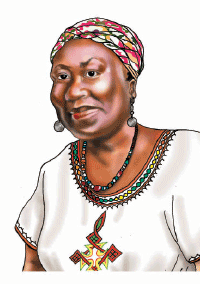Should laws apply equally to the leaders and the led alike? It is said that in ancient China, a so-called “school of legalism” which existed during the third century BC promoted the “rule by law”, as opposed to the “rule of law”. Their intention was that the aristocrats and the emperor should be placed above the law, and not be bound by it, like commoners. However, there have been rulers who seem to have understood that their own peace and happiness, not only those of their people, and the overall progress and stability of their land lay in submitting themselves equally to the rule of law. Such a ruler was King John of England who, in 1215, signed the Magna Carta, placing himself and other British sovereigns under the rule of law, thus limiting his own powers and granting certain liberties to the citizens. He may well have been forced to take that action, but at least he did sign the charter.
It is now eight centuries since King John, and yet not a few leaders of our day are still to buy into the idea that the proper and morally justifiable stance, particularly in a nation which calls itself a Republic and supposedly practices democracy, is for leaders and the led alike to be subjected to the rule of law. The law has to be king over all citizens, and we must start to seek, like John Adams, the second president of the United States said, “a government of laws and not of men.”
There is much to suggest that we are running a government of men, applying the rule by law. This has much to do with the degree of discretion that those who have been elected to run our affairs are allowed to exercise. How much of the resources of a state does a governor have the discretion of committing to a particular project? For example, can he decide, all by himself, that purchasing a new and befitting aircraft is more of a priority than, say, renovating all the primary schools in his domain and equipping every single classroom with computers? Is it to be left to the discretion of our elected officials to determine their own salaries and allowances as well as severance packages? Should a sitting governor name buildings erected with public funds after himself? How much of the common wealth of the people should be committed to running the machinery of government – paying all the advisers and special advisers, commissioners, ministers, ministers of state, etc? Should all these decisions be at the discretion of the leader, or should the people have a say in them?
The rule of law should not only be about bringing to justice those who are adjudged to have committed certain offences; it must also include the right of the people to have a say in how they are governed and how their common wealth is spent. When far too much is left to the discretion (or, maybe more rightly, indiscretion) of the leaders, then the people are not being rightly governed. It is said that a society in which government officers have a great deal of discretion has a low degree of the rule of law, whereas a society in which government officers have little discretion has a high degree of the rule of law.
How then do we proceed to limit the degree of discretion exercised by our rulers? First and foremost, it should be by appropriate, specific, well-targeted legislation – for example, against a serving governor naming a building after himself or elected officials (as servants of the people) determining their own pay, allowances and severance packages. One would have thought that these issues were obvious, common-sense matters.
Secondly, a way must be found to hold our leaders more accountable – before the fact, not only afterwards (simply waiting to vote them out and have the EFCC run after them once their term ends). Ways must be found to involve the people more in governance, and this can be done through the use of referendums. When there are important decisions to be taken, for example, like the naming a university or citing of an industry, the government (at the national, state or local government levels) must actively seek the input of the people. The technology for this is simple and available: have the votes cast on a dedicated website.
This should not be construed as a ploy to take over power from the elected officials. Rather, a government that invites and promotes such input from the citizens is in reality exercising its power in the noblest of ways. This kind of exercise of power leads to greater stability in the land and propels the people towards building a truly great nation, given their increased level of awareness about issues that touch their lives, and a greater sense of involvement and responsibility in their nation’s affairs.
However, if we, the people, find that we do not have the good luck of being ruled by such a crop of “benevolent” individuals, we must still remember, as citizens, that it is our duty and in our best interest to continue to “look over the shoulders” of our rulers, watching every single move they make and seeking to ensure that in this nation it is the rule of law that holds sway, not the rule by law.













